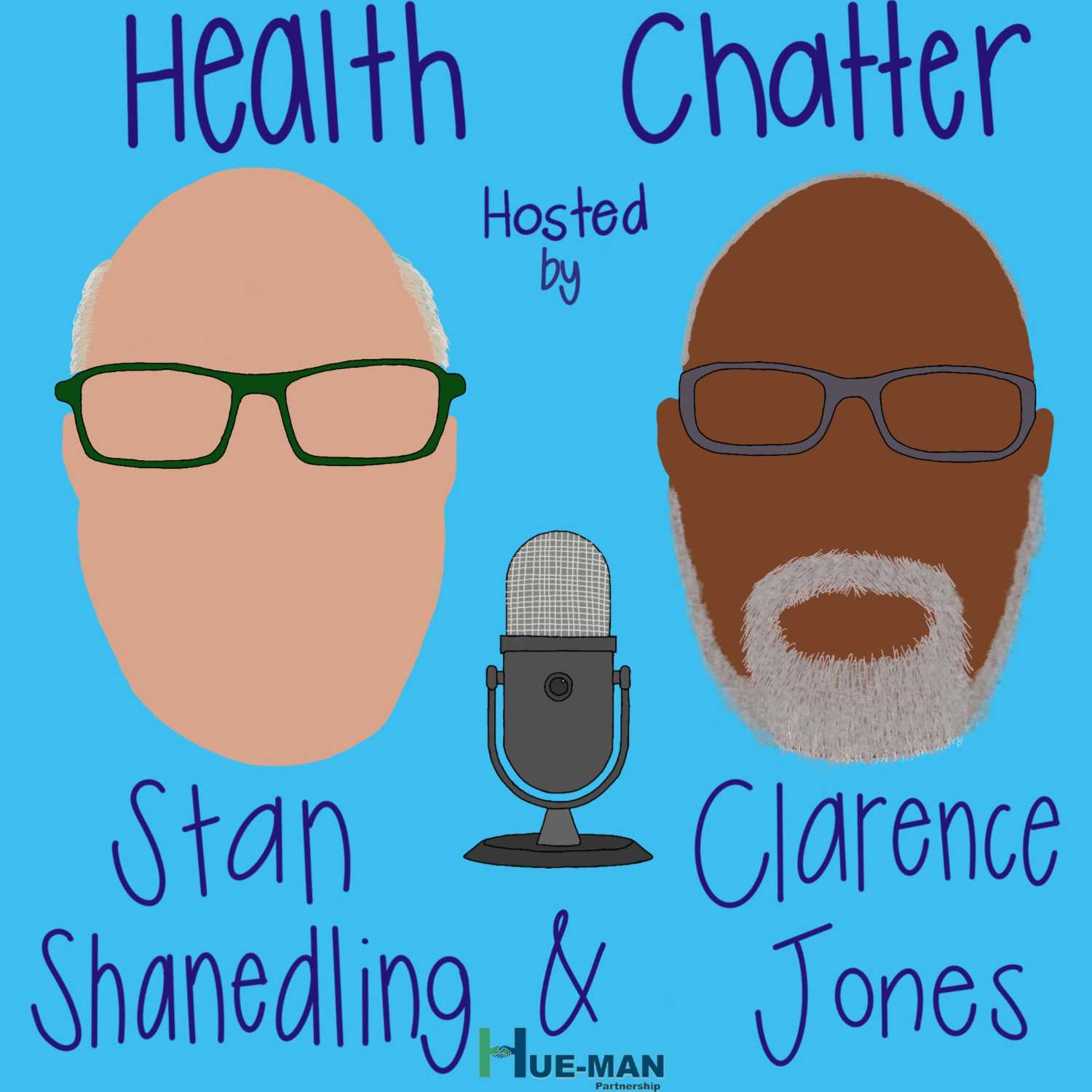Aug. 19, 2023
Life Lessons About Death
The player is loading ...

Stan and Clarence chat about life lessons they've learned and their experiences with death, grief, and loss.
Join the conversation at healthchatterpodcast.com
Brought to you in support of Hue-MAN, who is Creating Healthy Communities through Innovative Partnerships. More about their work can be found at http://huemanpartnership.org/
Outlines/Research:
- Death in general:
- Death is one of life’s only certainties, we can’t have life without death.
- Definition of death according to Merriam Webster: a permanent cessation of all vital functions; the end of life
- This definition does not accurately describe all experiences with death and dying. An example of this is a persistent vegetative state, a condition that people are unlikely to recover from where a person’s cortical functions cease (the person is not conscious), but his or her brainstem activities such as heartbeat and respiration continue. This condition can come about from several causes – massive traumatic head injury, stoppage of blood flow to the brain or even drug overdose. The person stands almost no chance of regaining consciousness but is not declared as dead. They are technically alive, in a state of wakefulness without awareness, but only as an artifact of modern technology. This has presented family members with serious ethical challenges, and reflects the difficulty and controversy involved in defining death even within the medical or Western perspective. Not surprisingly, conceptions and definitions of death vary widely across cultures.
- Be prepared for your own death, and the death of your loved ones.
- Create an advanced directive - also known as a living will, is a legal document that outlines your wishes for medical treatment in the event that you are unable to communicate them yourself.
- Write a Will - A will is a legal document that outlines how you want your belongings to be distributed after you die.
- Identify and appoint a power of attorney. - a legal document that gives someone else the authority to make decisions on your behalf.
- Choose (or update) your beneficiaries. Your beneficiaries are the people (or organizations) who will inherit your assets when you die.
- Look into starting a living trust. - a legal document that allows you to transfer your assets to your beneficiaries without going through probate. Probate is a lengthy and expensive process, so a living trust can be a helpful way to avoid it.
- Think about your final arrangements. - Your final arrangements are the plans you make for disposition and memorialization. Planning these arrangements in advance helps your family know what type of services you want and what to do with your remains when the time comes.
- Death in American society
- The social, epidemiologic, and demographic contexts of death have shifted dramatically over the past two centuries.
- Death used to happen more frequently and publically, now death occurs less and less frequently and typically in healthcare settings.
- Today, most people express the desire to die at home rather than in a hospital or nursing home, but the majority still die in an institution.
- It is generally held that contemporary western society is ‘death-denying’, which sociologists have termed the ‘denial of death thesis’ as a result of
- The medicalization of death
- Segregation of the dying from the rest of society
- The taboo on conversation about death
- We often use terms like “passed away” and other euphemisms to discuss death because we do not want to confront the reality of death.
- Lessons learned from losing someone special
- Losing a loved one is painful, but there is a flip side to every coin. In this case: there is much to learn from those tough losses.
- Experiences that push the living to think about death and dying, like losing a loved one or receiving a terminal medical diagnosis, can have profound effects on the way you live your life.
- Losing a loved one can help you to realize that life is short and you must live each moment to its fullest potential. “Take advantage of each day like it's the last day of your life, you never know when you will be right” - Patti LaBelle. Grief teaches us that we should live every day creating memories that will comfort us after our loved ones are gone or we are gone.
- The world continues to move forward around you, and that is okay.
- There are some losses you will never stop grieving.
- “I learned that people leave when it is their time. It isn’t personal. I also went on a quest for tools that would help me in years to come. Loss is a part of life in many forms, not just death. This led to me embracing a healthy lifestyle and getting on a spiritual path. There is a great story about two little boys who come home from school to find a huge mound of horse manure. One flies into a rage and exclaims: ‘Who is going to clean up all this horse shit?’ The other boy is delirious with joy and exclaims, ‘Where’s the pony?!’ In the worst challenges of my life, including a battle with cancer 16 years ago, I have learned to look for the pony.” - Regina Leeds
- Take an inventory of your life, and think about how you're spending your time and who you are spending it with. If you don't like the answer, change it, and don't wait for it to be too late.



